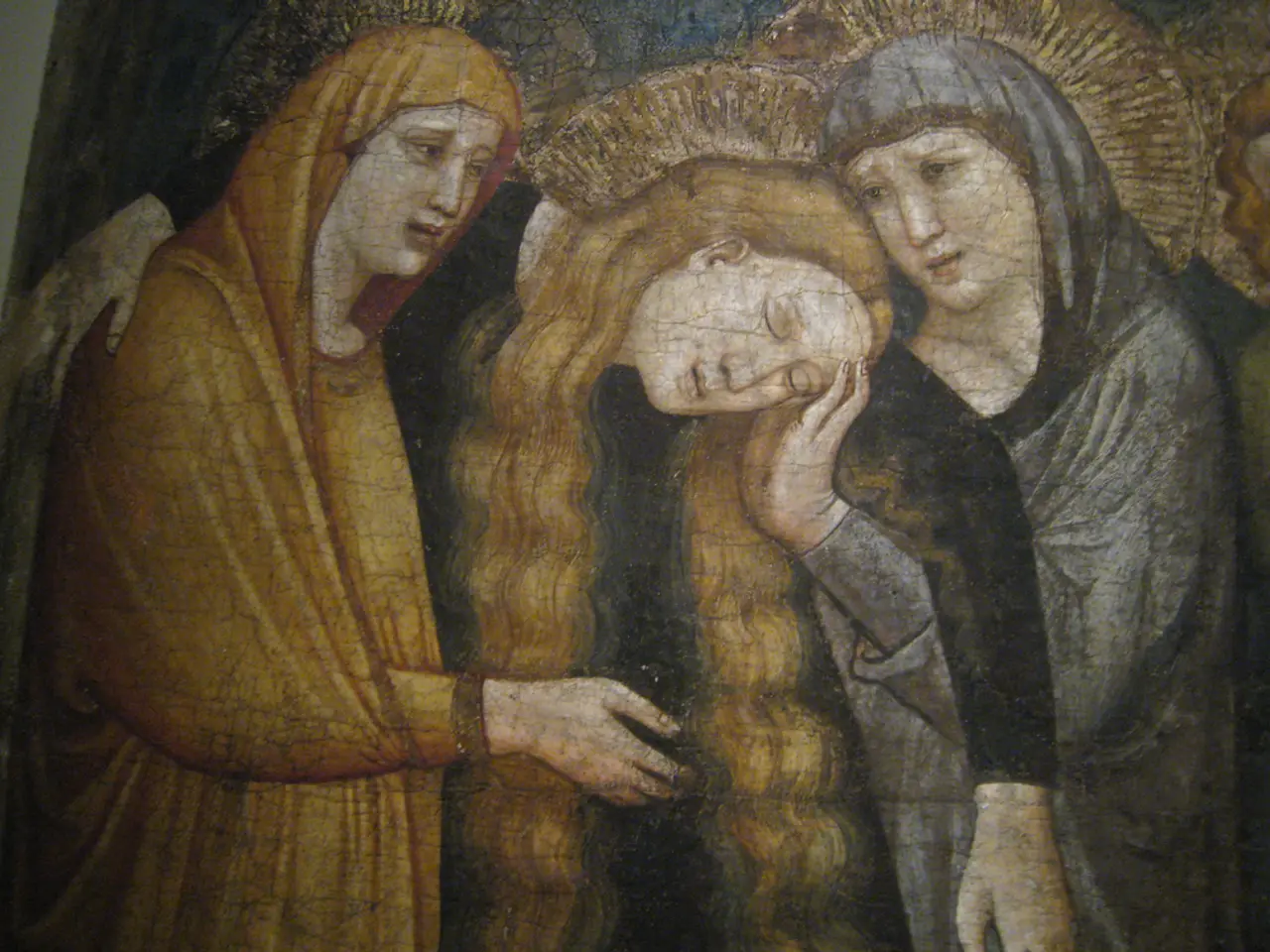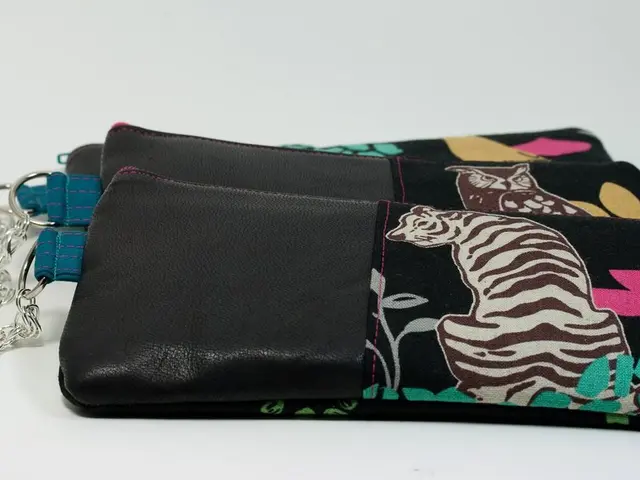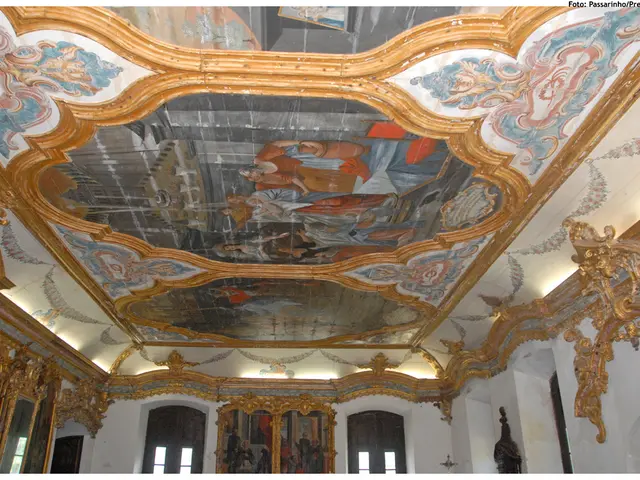Firm Financing Lawsuit over Allegedly Stolen Paintings Accused of Attempting to Govern Litigation by Family
In the heart of the art world, a significant legal battle is unfolding. Prince Castro Ben Leon, a Palestinian businessman, is engaged in a lawsuit against investor Mozes Frisch over the alleged theft of a priceless collection of Russian avant-garde paintings.
The collection, worth an estimated $323 million, includes works attributed to El Lissitsky, Kazimir Malevich, and Wassily Kandinsky, among others. A portion of these paintings, 135 pieces, were seized by French authorities in Paris earlier this year [1].
Prince Castro Ben Leon is seeking either the return of the stolen paintings or compensation in German courts [2]. The case has taken a complex turn with the involvement of LitFin Capital, a Prague-based litigation funder.
LitFin Capital, which manages a portfolio worth $5.8 billion in claim value across more than 25 major international disputes, initially backed the Khatibs' case but is now reportedly refusing to pay legal bills unless it takes control of the lawsuits [2]. This shift in dynamics has added a layer of contention to the case.
The late Palestinian businessman Uthman Khatib's son, Prince Castro Ben Leon, took control of the case following his father's death. Prior to his father's passing, Khatib had brought the lawsuit against LitFin in Germany in February [2].
Castro has accused LitFin of violating their funding agreement in a private case before a German arbitrator in Frankfurt, Germany [2]. Heppner, the Khatibs' attorney, has gone so far as to accuse Kravec, LitFin's CEO, of asking him to betray his client [2].
Meanwhile, ArtAnalysis, the company that had been holding the paintings for Frisch, is also embroiled in the lawsuit. ArtAnalysis's owner, Laurette Thomas, along with Frisch and art collector Olivia Amar, are suing Khatib for the return of the works held in Paris, along with an additional $30.5 million in damages [1].
Dentons, a global law firm, hired UK-based Doerr Dallas Valuations to appraise the paintings for insurance purposes. The company assigned a valuation of $208 million to the collection, but with a "caveat" mentioned by the company's founder [1].
Under the terms of their agreement, LitFin was due to be paid after the paintings were returned to Castro and sold. However, Castro claims that LitFin refused to pay for further legal costs in late 2024, having spent $4.3 million on the Khatibs' claims up until that point [2].
This legal battle promises to be a fascinating exploration of the intricacies of art law, litigation funding, and international disputes. As the case unfolds, more revelations are likely to come to light, shedding further light on this complex and captivating story.
[1] The Art Newspaper, "Palestinian heir sues art collector over stolen avant-garde paintings," 25 February 2023. [2] Bloomberg, "LitFin Capital's Role Adds Complexity to Stolen-Art Lawsuit," 1 March 2023.
- Despite the volatile situation, Prince Castro Ben Leon, a modern art collector, continues his legal fight to either reclaim his stolen Russian avant-garde paintings or receive compensation in German courts.
- The business aspect of this case has expanded with the involvement of LitFin Capital, a prominent finance firm managing billions in claim value across numerous international disputes, who initially backed the Khatibs' case but are now withholding funds for legal bills unless they take control of the lawsuits.
- As this significant legal battle unfolds, the worth of the art in question remains undeniable, with the paintings attributed to El Lissitsky, Kazimir Malevich, and Wassily Kandinsky, among others, estimated to be worth $323 million.




